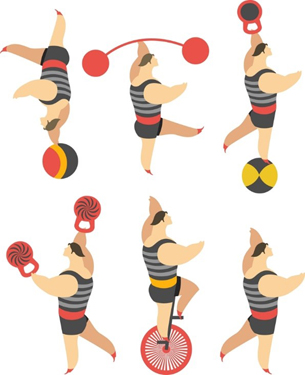Book Recommendations
Typically, I use this space to discuss a single subject. But instead, this time I want to share some things I have ran into in the last several months that you might find useful.
Two books I have recently read, have really had an effect on me. The first one is, “The Obstacle Is The Way” by Ryan Holiday[1]. This is a book on Stoicism. If you are not familiar. Stoicism is a philosophy [2] of personal ethics informed by its system of logic and its views on the natural world. According to its teachings, as social beings, the path to eudaimonia (happiness, or blessedness) is found in accepting the moment as it presents itself, by not allowing oneself to be controlled by the desire for pleasure or by the fear of pain, by using one’s mind to understand the world and to do one’s part in nature’s plan, and by working together and treating others fairly and justly.

The second book is “Life Is In The Transitions: Mastering Change At Any Age” [3] by Bruce Feiler. Some things in life just fall in your lap at just the right time as this book did for me. Life just isn’t a straight line. Nor do I think we want it to be if we’re going to evolve. Many, many years ago I was told that most people would switch jobs and even careers several times in their life. I thought this was strange. My Dad worked the same job for the same company for 40 years. He saw this as stability, and it was a very good way for him to provide for his family. My parents lived in the same house for 36 years. I have an Aunt who lived in the same house for over 70 years (she never married). I do believe that this was generational and regional. By the way. I have switched careers 3 times since my early 20’s. This is how it goes. Life is not a straight line. And if we are to grow then we want the change. Challenge is good. Failure is essential for learning, dusting off and then moving on, becoming stronger each time. Through this book Feiler takes us through his many years of research and discusses how people navigate change in their life. At ANY age. Stop sitting in your chair! Get up and get out the door!
Ok. Enough soapbox talk!!
Supplement Rating Website
Another thing I have ran into is a very handy web site: LabDoor.com.
This website rates and ranks supplements by name and by brand. According to their website – “Labdoor is an independent company that tests supplements. We find out whether products have what they claim and if they have any harmful ingredients or contaminants. Then, we grade and rank those products, write reports, and publish that information for free, so consumers can confidently buy the best supplements for their health.” Since supplements are not regulated this can be a great tool.
And as always, I am continuing to read and listen to information regarding longevity through our life and health span. Recently I have been dialing in a bit to information about epigenetics and epigenetic age (aka biological age).
First off. What is Epigenetics?
Epigenetics is a biological mechanism [4] that regulates gene expression (how and when certain genes are turned on or off). Diet, lifestyle, and environmental exposures can drive epigenetic changes throughout an individual’s lifespan to influence health and disease. For example, epigenetic processes are dysregulated in diseases such as cancer and Alzheimer’s disease.
Ok. I’m going to get a bit sciencey here but –
Three biochemical processes [4] are thought to drive epigenetic change: DNA methylation, histone modification, and non-coding RNA-associated gene silencing. DNA methylation has relevance for predicting biological age via epigenetic clocks.
I absolutely encourage you to listen to this less than 4-minute video of Dr Rhonda Patrick explaining this a little better.
She also discusses the Horvath Clock, which is a method that your epigenetic age can be measured.
Epigenetic Clocks
Epigenetic clocks [5] were first demonstrated in 2009. The measurement of DNA methylation can predict ageing and disease onset.
The Horvath Clock [5] was developed by Steve Horvath a professor of human genetics and biostatistics at UCLA. His age estimator was developed using 8000 samples. What makes his clock different from others is that it can measure epigenetic age of different parts of your body.
WOW! Science is AMAZING!
[2] https://en.wikipedia.org/wiki/Stoicism
[3] https://www.amazon.com/Life-Transitions-Mastering-Change-Any/dp/1594206821/ref=sr_1_1?crid=3TEMOYB02R8BT&dchild=1&keywords=life+is+in+the+transitions&qid=1611072842&sprefix=life+is+in+the+tr%2Caps%2C208&sr=8-1
[4] https://www.foundmyfitness.com/topics/epigenetic-clocks
[5] https://en.wikipedia.org/wiki/Epigenetic_clock